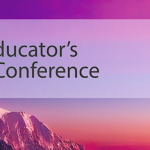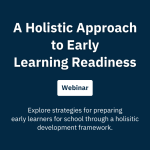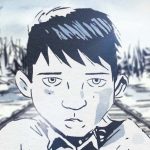Decolonizing Math: Creating Culturally-Relevant Resources
Although learners can have trouble with any subject, math is the one learners complain about most. Often this is because learners don’t see the connection or relevance of math to their daily lives. Too often, math problems don’t reflect realistic situations or connect to learners’ realities. That makes it hard for learners to engage with the content. It is especially true for Indigenous learners. Many elements of western math instruction don’t necessarily align with the principles of Indigenous learning. This post will explore ideas for decolonizing math in ways that feel natural and authentic.
Integrating Indigenous Examples
A simple first step in integrating Indigenous perspectives into math content is consistently integrating terminology and examples into math problems. While this is a small change, relevant examples can better help learners understand a topic. For example, introduce probability by showcasing a common Indigenous hand game played in the community. That may help hold the learners’ interest and help them better relate to the topic. A relevant and familiar example enables learners to focus on the new terminology related to the topic rather than struggling to understand other example elements.
Probability in Lahal: An Example of Decolonizing Math
The examples used in instruction must be pertinent, meaningful, and consistent. Ideally, examples come naturally to the explanation. They should also add value to the instruction, not just token names or integrated places to provide loose connections.
Connecting Math & Indigenous Knowledge
Another way to decolonize math content is to focus on the six areas of human activity that are common across all cultures:
- measuring
- locating
- playing
- counting
- designing
- explaining
You will make problems more approachable if you center math problems around these activities and work in relevant cultural terminology and examples. A great example is using cooking to teach fractions. Food is an important part of family culture in Indigenous communities. Suppose you base a math problem around scaling a recipe to make a common dish, such as Fry Bread or Bannock for a large group. In that case, you use a real-world example that may resonate well with learners and translate to the knowledge they will need.
When learning cooking from family members and elders, it is typical to hear terms like “a handful” or “a pinch.” An activity could start by measuring and quantifying local values and aligning them with universal measures, like a ½ cup or ¼ teaspoon. Learners can then learn how to scale the recipe by using proportional reasoning. They can also look at downscaling recipes to feed smaller groups and preserve resources, therefore applying division of fractions.
Decolonizing Math Through Indigenous Themes
To take this concept further, you can also look for ways to connect broader Indigenous themes to math instruction. Say you are teaching the topic of number percentages as part of your grade 8 math program. Instead of jumping into a question, start talking about a theme that resonates with learners, like family and ancestry. Ask your learners to map out their family tree and calculate percentages of different scenarios. For example, learners can calculate the number of females vs. males, the average ages, or other variables. They will see real-world, contextual learning. You can also teach number percentages by looking at resource management, predicted yields, or community profiles. It makes percentages more relevant and enhances numeracy as it includes some data analysis.
Using Stories in Math Instruction
Word problems are a big part of teaching logic and reasoning. However, they do not often align with Indigenous oral traditions. Word problems frame the question and provide more details, but they are not truly story-based learning. The use of storytelling can help frame a topic and provide history and context to learning.
Consider how multiple topics can align to a theme. Weave together a lesson or a series of lessons, and build out learning through stories. We recently worked with a school where learners had trouble with even and odd numbers and skip counting. We decided to build a story-driven set of videos that showcased the tale of three friends playing a game of Willow Sticks. It allowed us to weave in many math concepts to a game that most of the learners in the community play. That made it more relevant and provided a new perspective on how educators could teach the content. Instead of addressing the content by topic, we wove themes into a story related to a familiar situation.
Approaching Math from a Holistic Perspective
Weaving storytelling and providing relevant examples often leads to more holistic math learning. Relating to broader topics and themes provides learning opportunities that bridge home, school, and community. It’s easy to work with math concepts like trajectories, angles, and distance calculations while talking about outdoor activities like ice fishing and trapping. You can also work on math skills when looking at science topics. While teaching learners about trees, it’s easy to work in lessons. Learners can count rings, determine a trunk’s radius or diameter, or predict the volume of sap a tree can generate per year, estimating its syrup yield. There is a natural progression toward math integration into other projects and subjects and a more holistic approach for inclusion.
Decolonizing Math: Steps for Success
Decolonizing math resources does require some planning and structure and support and participation by others. Educators may also need some preparation and education to feel supported and comfortable, including Indigenous examples. An educator may need to do essential research to support a math concept with a relevant example. Let’s say an educator wants to use an Indigenous game to explain a math concept. First, they will need to learn its rules, history, and cultural significance. It may also require the collaboration of other educators to build projects that span subjects or topics to integrate math into overall learning better.
If you would like to explore how Learning Bird can assist you in building decolonized math content, we’d be happy to chat. We can also share some other examples of content with you. Contact us at 1-888-844-9022 or email achieve@learningbird.com.








